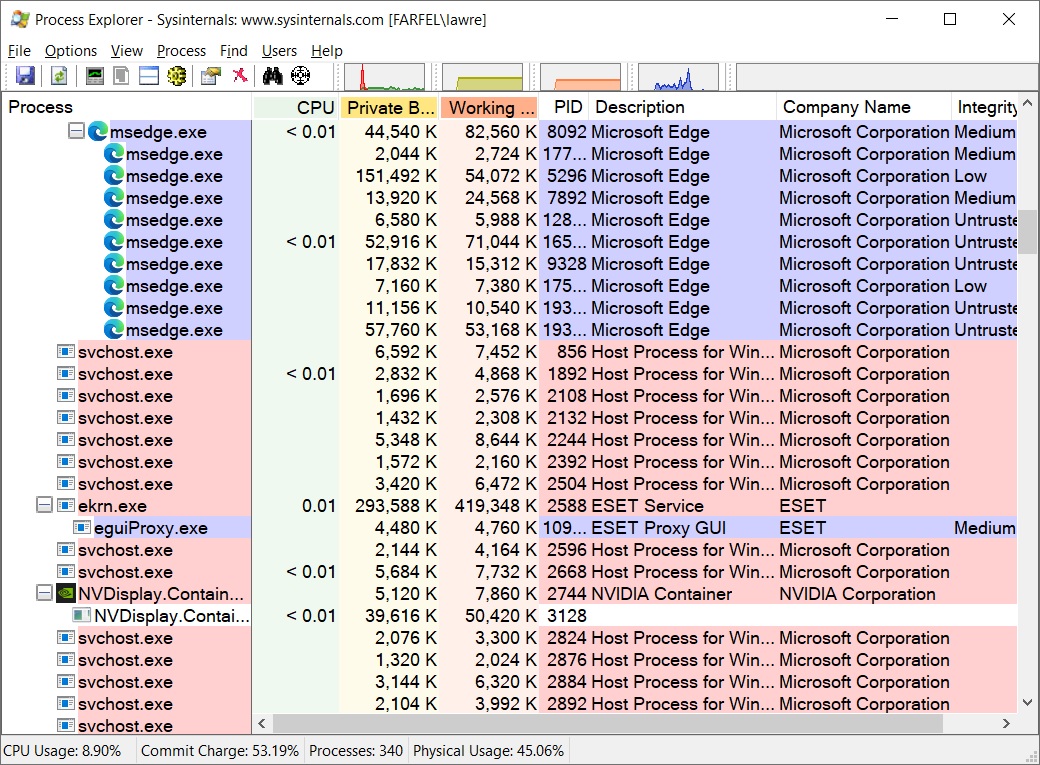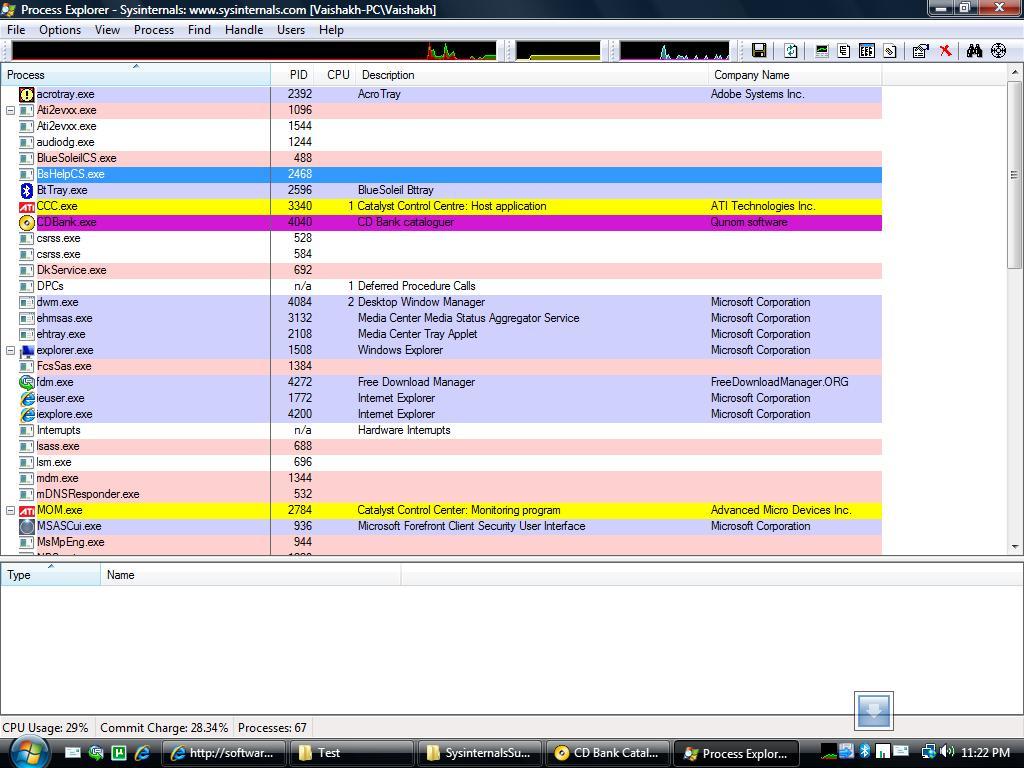

: This update to Sigcheck, a command-line utility for analyzing the digital signatures of executable images, fixes a bug that could cause it to crash when reporting the signing status of images that have invalid signatures. This program is mostly safe but can cause issues if used incorrectly. : This update to Process Explorer adds the ability to view the process token of protected processes, fixes a bug that causes a crash when viewing thread stacks on Windows XP, and fixes a bug that causes a crash when running on Windows PE. Process explorer is a malware removal tool that helps you find and shut down unwanted or dangerous programs so you can easily delete them.

: This release of DebugView, a debug output monitoring utility, addresses a bug that could cause DebugView to blue screen on “checked build” (debug) versions of Windows. Besides obtaining min, max, and average values in 0.01ms resolution, you can also use PsPing to generate histograms of the results that are easy to import into spreadsheets. In addition to standard ICMP ping functionality, it can report the latency of connecting to TCP ports, the latency of TCP round-trip communication between systems, and the TCP bandwidth available to a connection between systems. : PsPing is a new Sysinternals PsTools command-line utility for measuring network performance. Caveat: If there are many processes with the same name it would output the time only for the last one started.First published on TechNet on Oct 03, 2012 exe and it will output when the process was started. Here I have written a little batch script for the purpose: OFFĮCHO Prints process creation date in ISO format. If you want a more readable representation you'd need to prep it with a script. Or wmic process where ProcessID="" get CreationDate It can be downloaded from Microsoft TechNet website from here. In CMD you can use standard Windows Management Instrumentation Command-line ( WMIC) utility to get the process start time: wmic process where Name="" get CreationDate Process Explorer is a SysInternals utility that is pretty much advanced version of in-built Task Manager.


 0 kommentar(er)
0 kommentar(er)
